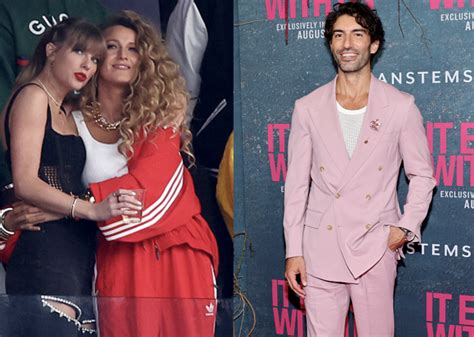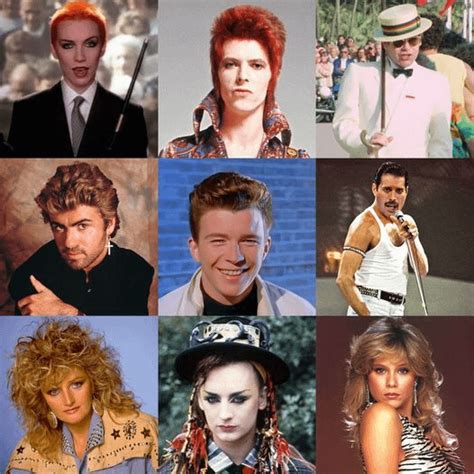
Dame Helen Mirren’s recent critique of the term “beauty” as applied to women, declaring “None of us are beautiful,” has sparked reactions from fellow actresses Kathy Bates and Keri Russell, igniting a conversation about societal pressures on women and aging in Hollywood.
Dame Helen Mirren, known for her illustrious career and outspoken views, recently challenged the pervasive use of the word “beauty” in describing women, particularly within the entertainment industry. In an interview, Mirren asserted, “None of us are beautiful,” advocating for a shift in language to focus on qualities like “having great style” instead. This bold statement has resonated with many, including veteran actress Kathy Bates and “The Americans” star Keri Russell, who have voiced their support and added their perspectives to the discussion.
Mirren’s comments, made during a broader discussion about aging and representation in Hollywood, highlight a growing discontent with the narrow definitions of beauty that often dominate the media landscape. “People keep talking about beauty and this and that and I go, ‘None of us are beautiful,'” Mirren stated, emphasizing that the term has become diluted and almost meaningless through overuse. She proposed alternatives, suggesting that describing someone as having “great style” or a “great look” is far more meaningful and indicative of individual character and presence.
Kathy Bates, a celebrated actress with a career spanning decades, echoed Mirren’s sentiments, emphasizing the unrealistic expectations placed on women, especially in the entertainment industry. Bates, a breast cancer survivor and advocate for body positivity, has been vocal about the pressures she faced throughout her career to conform to conventional beauty standards. She noted the importance of actresses like Mirren speaking out against these pressures, paving the way for a more inclusive and accepting environment. Bates emphasized that true beauty comes from within, reflecting character, resilience, and authenticity.
Keri Russell, known for her roles in “Felicity” and “The Americans,” offered a more nuanced perspective, acknowledging the complexities of beauty standards while emphasizing the importance of self-acceptance. Russell, who has often been praised for her natural and understated style, highlighted the pressure to maintain a youthful appearance in Hollywood. She lauded Mirren’s comments as a reminder to resist these pressures and embrace the aging process with grace and confidence. Russell underscored the value of individuality and self-expression, encouraging women to define beauty on their own terms.
The reactions from Bates and Russell underscore the broader cultural conversation surrounding beauty, aging, and representation. In an industry often criticized for its unrealistic standards and ageism, Mirren’s comments have served as a catalyst for reflection and change. The support from Bates and Russell, both influential figures in their own right, amplifies Mirren’s message, encouraging a more inclusive and accepting dialogue about beauty and aging.
Mirren’s perspective reflects a growing movement challenging traditional beauty standards. For years, the entertainment industry has been under scrutiny for its lack of diversity and its emphasis on youth and conventional beauty. This has led to increased pressure on actresses to undergo cosmetic procedures and adhere to stringent weight and appearance standards. Mirren’s comments directly address this issue, advocating for a more realistic and inclusive portrayal of women in the media.
The impact of Mirren’s statement extends beyond Hollywood, resonating with women of all ages and backgrounds who have felt the pressure to conform to unrealistic beauty ideals. Her message promotes self-acceptance and encourages individuals to celebrate their unique qualities rather than striving for an unattainable standard. By questioning the overuse and meaning of the word “beauty,” Mirren invites a critical examination of the values and priorities that shape our perceptions of ourselves and others.
The support from Bates and Russell further strengthens this message, adding credibility and weight to the call for change. Bates’ personal experience with overcoming breast cancer and advocating for body positivity lends authenticity to her endorsement of Mirren’s views. Russell’s nuanced perspective, acknowledging the complexities of beauty standards while promoting self-acceptance, provides a balanced and relatable message for women navigating these challenges.
The ongoing conversation sparked by Mirren’s comments underscores the importance of continued dialogue and advocacy for greater diversity and inclusivity in the entertainment industry. By challenging traditional beauty standards and promoting self-acceptance, Mirren, Bates, and Russell are contributing to a more empowering and equitable environment for women in Hollywood and beyond. Their collective voices serve as a powerful reminder that true beauty lies in individuality, character, and resilience.
The industry’s response to Mirren’s comments is indicative of a potential shift in attitudes towards aging and beauty. While the entertainment industry has historically prioritized youth and conventional beauty, there is a growing recognition of the value and importance of experience and authenticity. This shift is reflected in the increasing visibility of older actresses in prominent roles and the growing acceptance of diverse body types and appearances.
However, significant challenges remain. The pressure to conform to unrealistic beauty standards continues to be a significant issue for actresses, particularly those who are navigating the aging process. The prevalence of cosmetic procedures and the emphasis on maintaining a youthful appearance highlight the ongoing challenges in creating a truly inclusive and accepting environment.
Despite these challenges, Mirren’s comments, and the subsequent support from Bates and Russell, offer a glimmer of hope for a more equitable and empowering future for women in Hollywood. By challenging traditional beauty standards and advocating for self-acceptance, these actresses are paving the way for a more diverse and inclusive industry that celebrates individuality and authenticity.
The discussion ignited by Mirren’s statement also extends to the broader societal implications of beauty standards. The media’s portrayal of women often reinforces unrealistic and unattainable ideals, contributing to feelings of inadequacy and low self-esteem among women of all ages. By questioning the overuse and meaning of the word “beauty,” Mirren invites a critical examination of the values and priorities that shape our perceptions of ourselves and others.
This examination is particularly relevant in the age of social media, where curated images and filtered realities often dominate the online landscape. The pressure to present a perfect image online can exacerbate feelings of inadequacy and contribute to a culture of comparison and competition. By challenging these unrealistic standards, Mirren, Bates, and Russell are encouraging women to embrace their individuality and celebrate their authentic selves.
The impact of their message extends beyond the entertainment industry, resonating with women of all ages and backgrounds who have felt the pressure to conform to unrealistic beauty ideals. Their collective voices serve as a powerful reminder that true beauty lies in individuality, character, and resilience.
In conclusion, Dame Helen Mirren’s bold critique of the term “beauty” has sparked a vital conversation about societal pressures on women, aging in Hollywood, and the importance of self-acceptance. The support from Kathy Bates and Keri Russell amplifies this message, contributing to a growing movement towards a more inclusive and empowering environment for women in the entertainment industry and beyond. Their collective voices serve as a powerful reminder that true beauty lies in individuality, character, and resilience, encouraging a shift in perspective towards celebrating authenticity and embracing the aging process with grace and confidence. The ongoing dialogue underscores the need for continued advocacy and action to challenge traditional beauty standards and create a more equitable and empowering world for women.
Frequently Asked Questions (FAQs)
1. What was Helen Mirren’s main point about beauty?
Helen Mirren stated, “None of us are beautiful,” advocating for a shift away from the term “beauty” when describing women, suggesting that focusing on qualities like “having great style” or a “great look” is more meaningful and reflective of individual character. She believes the term has become diluted and almost meaningless through overuse.
2. How did Kathy Bates respond to Helen Mirren’s comments?
Kathy Bates echoed Mirren’s sentiments, emphasizing the unrealistic expectations placed on women, especially in the entertainment industry. She highlighted the importance of actresses like Mirren speaking out against these pressures, paving the way for a more inclusive and accepting environment, and emphasized that true beauty comes from within, reflecting character, resilience, and authenticity.
3. What was Keri Russell’s perspective on the discussion about beauty?
Keri Russell offered a nuanced perspective, acknowledging the complexities of beauty standards while emphasizing the importance of self-acceptance. She lauded Mirren’s comments as a reminder to resist the pressure to maintain a youthful appearance in Hollywood and embrace the aging process with grace and confidence. She underscored the value of individuality and self-expression, encouraging women to define beauty on their own terms.
4. Why is this conversation about beauty important in Hollywood?
The conversation is important because Hollywood has historically been criticized for its unrealistic standards, ageism, and lack of diversity. The entertainment industry often prioritizes youth and conventional beauty, leading to increased pressure on actresses to conform to stringent weight and appearance standards. This dialogue challenges those standards and advocates for a more realistic and inclusive portrayal of women in the media.
5. What are the broader societal implications of this discussion about beauty standards?
The discussion extends to the broader societal implications of beauty standards, as the media’s portrayal of women often reinforces unrealistic and unattainable ideals, contributing to feelings of inadequacy and low self-esteem among women of all ages. By questioning the overuse and meaning of the word “beauty,” this conversation invites a critical examination of the values and priorities that shape our perceptions of ourselves and others, promoting self-acceptance and encouraging individuals to celebrate their unique qualities rather than striving for an unattainable standard.
Expanded Analysis and Context
The ripples caused by Helen Mirren’s statement extend far beyond the immediate reactions of fellow actresses; they touch upon deep-seated cultural norms and the historical objectification of women. For centuries, women have been judged primarily on their physical appearance, a phenomenon that has been reinforced by art, literature, and, more recently, mass media. This focus on physical beauty has often overshadowed women’s intellectual capabilities, accomplishments, and inner qualities.
Mirren’s challenge to the term “beauty” is not simply a semantic argument; it’s a call for a fundamental shift in how women are perceived and valued. By suggesting alternative descriptors like “style” or “look,” she encourages a move away from superficial judgments towards a recognition of individual character and presence. This shift would require a conscious effort to redefine what is considered admirable and desirable in women, placing greater emphasis on qualities like intelligence, creativity, resilience, and compassion.
Kathy Bates’s endorsement of Mirren’s views carries particular weight due to her personal experience with body image issues and her advocacy for body positivity. As a breast cancer survivor, Bates has openly discussed the challenges she faced in accepting her changing body and navigating the pressures of Hollywood. Her willingness to share her story has made her a powerful voice for body acceptance and self-love.
Bates’s perspective highlights the importance of representation in the media. When women of all shapes, sizes, and ages are portrayed positively and authentically, it helps to challenge the narrow definitions of beauty that often dominate the media landscape. This representation can empower women to embrace their individuality and resist the pressure to conform to unrealistic ideals.
Keri Russell’s nuanced perspective acknowledges the complexities of navigating beauty standards in Hollywood. While she recognizes the pressure to maintain a youthful appearance, she also emphasizes the importance of self-acceptance and embracing the aging process with grace and confidence. Her comments reflect a growing awareness of the harmful effects of ageism in the entertainment industry.
Ageism, or discrimination based on age, is a pervasive issue in Hollywood, particularly for female actors. Women often face limited opportunities as they age, while their male counterparts continue to enjoy prominent roles. This disparity reflects a broader societal bias against older women, who are often deemed less attractive or valuable than younger women.
Mirren, Bates, and Russell are all challenging this ageist narrative by demonstrating that women can be powerful, successful, and beautiful at any age. Their collective voices serve as a powerful reminder that experience, wisdom, and resilience are valuable assets that should be celebrated, not marginalized.
The impact of Mirren’s statement also extends to the broader cultural conversation about social media and its influence on beauty standards. Social media platforms often present a distorted view of reality, where curated images and filtered realities can create a culture of comparison and competition. This can exacerbate feelings of inadequacy and low self-esteem, particularly among young women.
By challenging these unrealistic standards, Mirren, Bates, and Russell are encouraging women to be more critical of the images they see online and to prioritize their own well-being over the pursuit of an unattainable ideal. Their message promotes self-acceptance and encourages individuals to celebrate their authentic selves, flaws and all.
The ongoing dialogue sparked by Mirren’s comments underscores the importance of continued advocacy for greater diversity and inclusivity in the entertainment industry. This includes advocating for more roles for women of color, women with disabilities, and women of different ages and body types. It also means challenging the stereotypes and biases that often perpetuate unrealistic beauty standards.
Ultimately, the goal is to create a more equitable and empowering environment for women in Hollywood and beyond. This requires a collective effort from industry professionals, media outlets, and individuals to challenge traditional beauty standards and promote self-acceptance and inclusivity. By working together, we can create a world where women are valued for their character, intelligence, and contributions, rather than solely on their physical appearance.
The conversation that Mirren initiated is part of a larger societal shift towards greater awareness of the harmful effects of unrealistic beauty standards. Movements like body positivity and self-love are gaining momentum, challenging the traditional narratives that have long dominated the media landscape. These movements encourage individuals to embrace their bodies as they are and to celebrate their unique qualities.
Mirren’s comments also align with the growing emphasis on mental health and well-being. The pressure to conform to unrealistic beauty standards can have a significant impact on mental health, leading to anxiety, depression, and eating disorders. By challenging these standards, Mirren, Bates, and Russell are promoting a more holistic approach to well-being that prioritizes self-acceptance and mental health over physical appearance.
The ripple effects of Mirren’s statement are likely to continue for some time, as the conversation about beauty standards and self-acceptance evolves. Her courage in speaking out against the status quo has inspired others to challenge the traditional narratives and to advocate for a more inclusive and empowering world for women.
The fact that Mirren, Bates, and Russell are all established and respected figures in the entertainment industry adds significant weight to their message. Their voices carry authority and influence, and their willingness to challenge the status quo can inspire others to do the same. Their actions demonstrate that it is possible to be successful and authentic in Hollywood, even while challenging the norms and expectations of the industry.
The ongoing dialogue about beauty standards is not just about changing the way women are perceived; it’s about changing the way women perceive themselves. By challenging the traditional narratives, Mirren, Bates, and Russell are empowering women to reclaim their own definition of beauty and to embrace their individuality. This empowerment can lead to greater self-confidence, resilience, and a greater sense of purpose.
In conclusion, Dame Helen Mirren’s bold critique of the term “beauty” has sparked a vital and far-reaching conversation about societal pressures on women, aging in Hollywood, and the importance of self-acceptance. The support from Kathy Bates and Keri Russell amplifies this message, contributing to a growing movement towards a more inclusive and empowering environment for women in the entertainment industry and beyond. Their collective voices serve as a powerful reminder that true beauty lies in individuality, character, and resilience, encouraging a shift in perspective towards celebrating authenticity and embracing the aging process with grace and confidence. The ongoing dialogue underscores the need for continued advocacy and action to challenge traditional beauty standards and create a more equitable and empowering world for women, one where internal qualities are valued over superficial appearances. This shift necessitates a fundamental change in societal attitudes, media representation, and individual perceptions, fostering an environment where women are celebrated for their unique contributions and inherent worth, rather than confined by unrealistic and unattainable ideals of beauty. Ultimately, the goal is to create a culture that empowers women to embrace their authentic selves, cultivate their inner strengths, and contribute their talents to the world without the burden of unrealistic expectations.









